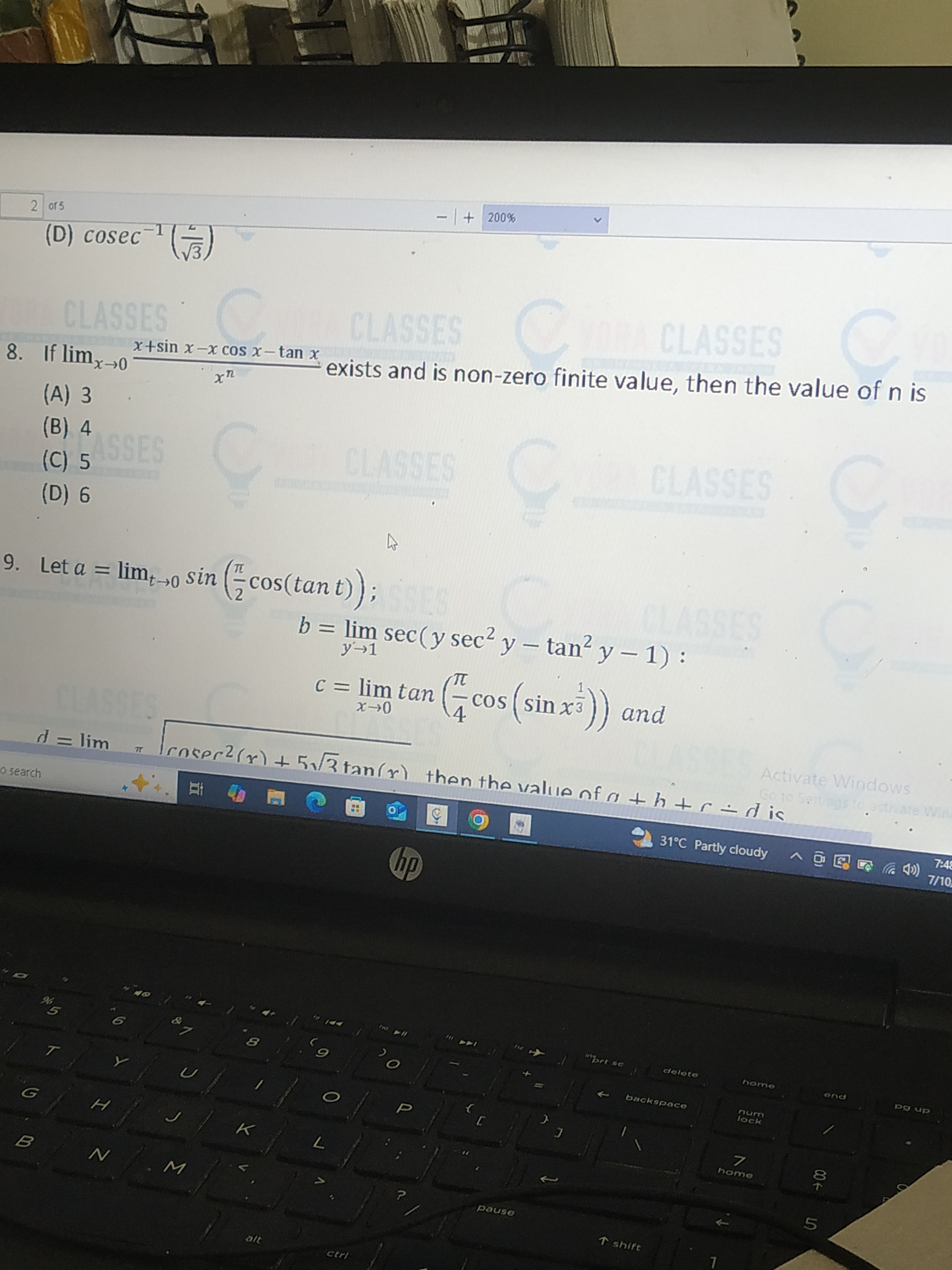Question
Question: If $\lim_{x\to 0} \frac{x+\sin x-x \cos x-\tan x}{x^{n}}$ exists and is non-zero finite value, then ...
If limx→0xnx+sinx−xcosx−tanx exists and is non-zero finite value, then the value of n is

3
4
5
6
5
Solution
To find the value of n, we need to analyze the Taylor series expansion of the numerator around x=0.
The Maclaurin series expansions for sinx, cosx, and tanx are:
-
sinx=x−3!x3+5!x5−7!x7+O(x9)
-
cosx=1−2!x2+4!x4−6!x6+O(x8)
-
tanx=x+3x3+152x5+31517x7+O(x9)
Substitute these expansions into the numerator N(x)=x+sinx−xcosx−tanx:
N(x)=x+(x−6x3+120x5−…)−x(1−2x2+24x4−…)−(x+3x3+152x5+…)
Expand the terms:
N(x)=x+x−6x3+120x5−⋯−x+2x3−24x5+⋯−x−3x3−152x5−…
Group terms by powers of x:
Coefficient of x: 1+1−1−1=0
Coefficient of x3: −61+21−31=6−1+3−2=60=0
Coefficient of x5: 1201−241−152=1201−1205−12016=1201−5−16=120−20=−61
So, the numerator N(x) simplifies to:
N(x)=−6x5+O(x7)
Now, the limit becomes:
limx→0xn−6x5+O(x7)
For this limit to exist and be a non-zero finite value, the lowest power of x in the numerator must match the power in the denominator. Therefore, n must be 5.
In this case, the limit evaluates to:
limx→0x5−6x5=−61
This is a non-zero finite value.
Thus, the value of n is 5.
